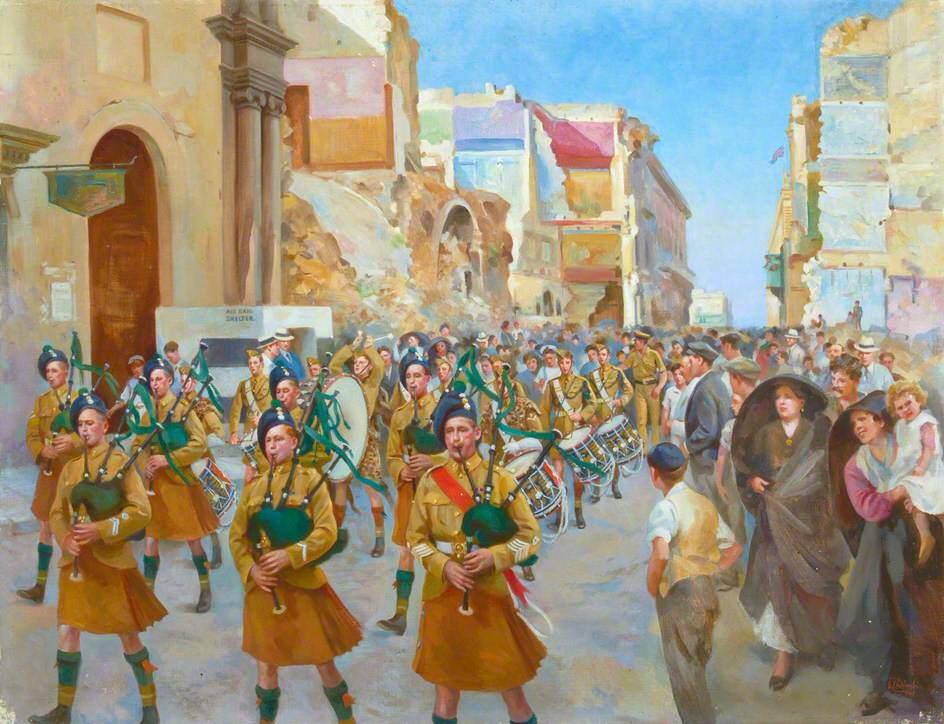|
Faugh a Ballagh
(also written Faugh an Beallach) is a battle cry of Irish
origin, meaning "clear the way". The spelling is an 18th-century
Anglicization of the Irish language phrase Fág an Bealach,
also written Fág a' Bealach. Its first recorded use as a
regimental motto was by the Royal Irish Fusiliers in 1798.
It was adopted due to the blood curdling battle-cry of Sergeant
Patrick Masterson as he tore into the French ranks, with Ensign
Keogh, to capture the first French Imperial Eagle to be taken in
battle – during the Battle of Barossa. He was then heard to cry
'Be Jabers Boys! I have the Cuckoo!' as he held it triumphantly
aloft to rouse the spirits of his men. Ensign Keogh
did not survive the daring dash into the French ranks.
The tune was popularized outside of Ireland during the American
Civil War by the Army of the Potomac's Irish Brigade – composed
of the 69th New York Volunteer Infantry (NYVI) or "Fighting
69th", the 63rd & 88th NYVI, and later the 116th Pennsylvania
and 28th Massachusetts Infantry regiments. A variant
transliteration of the motto, 'Faj an Bealac!' was inscribed on
the regimental colors of the (Federal) 7th Missouri Volunteer
Infantry, the "Irish Seventh", which fought in the Civil War's
Western Theater as part of Grant and Sherman's Army of the
Tennessee.

The Royal Irish Fusiliers (1881-1968) are considered by most
warpipers to have been the best players and foremost exponents
of the two droned pipe. Their popular recordings made in the
1960's brought the music of the pipes to the rest of the world.
The greatness of this regiment is shown not just by its battle
record but in its popularity and recruitment of soldiers from
south of the border in the Republic of Ireland. Not only was the
regiment known by its nickname of "The Faughs" but also were
often referred to by writers and even BBC announcers as "that
famous Irish regiment".
Faugh a Ballagh remains the motto of the Royal Irish Regiment
today.
|



